Politics
How North Korea is changing Russia’s war in Ukraine
Published
6 months agoon
By
Ekwutos Blog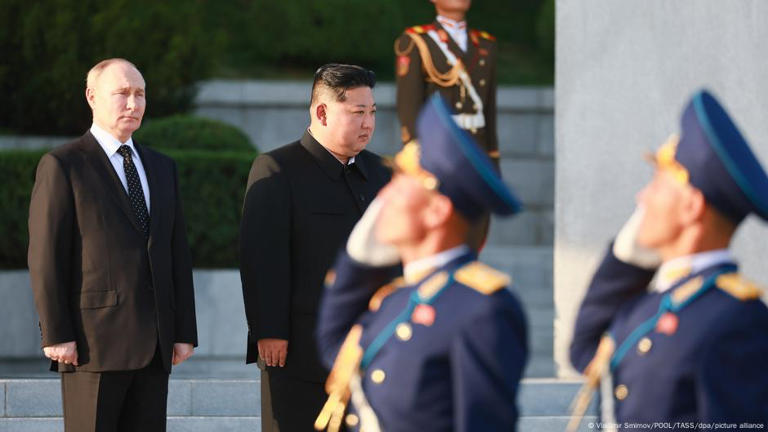
Signs are mounting that North Korean soldiers are fighting on Russia’s side in Ukraine. Kyiv is already talking about a new war party. In what ways could heightened North Korean-Russian ties affect the war?
In June, Russian President Vladimir Putin traveled to Pyongyang to discuss a security partnership with North Korean leader Kim Jong Un.
Prior to this, there had been rumors of extensive North Korean arms deliveries to Russia. And as early as 2023, the Ukrainian military intelligence had reported that a limited North Korean military contingent had arrived in the Russian-occupied territories of Ukraine.
Now, latest findings by South Korean national intelligence service (NIS) indicate that the North Korean-Russian ties have reached new heights.
North Korean soldiers in Russia
According to a report published last Friday, Pyongyang wants to provide up to 12,000 soldiersfor Russia’s war in Ukraine.
Of these, 1,500 were said to have already disembarked in the Russian port city of Vladivostok. Meanwhile, the NIS has upped this number to around 3,000 soldiers.
It would appear that North Korean soldiers are to be issued Russian uniforms in order to conceal their identity. DW’s fact-checking team was able to confirm that the footage provided by the NIS shows locations in Russia’s eastern military districts.
Neither Russia nor North Korea have yet officially confirmed the findings.
“At the moment, there is little concrete information and a lot of vague speculation,” Nico Lange, a senior fellow at the Munich Security Conference, told DW.
“But there is no doubt that North Koreans are in Russia for training,” he added. “And there is also no doubt that for some time now (…) construction units of the North Korean armed forces have been active in the occupied territories in Ukraine.”
And yet, he also cautions not to draw the conclusion that 12,000 North Korean soldiers were now fighting in Russian trenches across Ukraine. “That’s not what we’ve been observing so far,” he said.
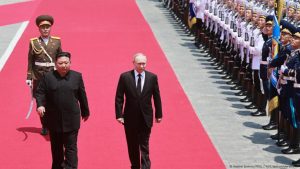
As of now, neither North Korean leader Kim Jong Un nor Russia’s President Vladimir Putin have confirmed shipments of weapons or the deployment of soldiers.
© Vladimir Smirnov/POOL/TASS/dpa/picture alliance
Western restraint
From a Ukrainian perspective, however, all of this is still a concerning development.
While Russia’s head of state Putin presented himself as a respectable host at the BRICS summit this week, Kyiv is growing increasingly worried over waning support for Ukraine.
President Volodymyr Zelenskyy’s “victory plan” has so far failed to gain traction. Furthermore, Ukraine fears that Republican nominee Donald Trump, who wants to cut arms aid and recently blamed the Ukrainian president for Russia’s invasion, will win the US presidential election in early November.
As of now, it remains to be seen in what way the US will handle an escalation in Russia’s war in Ukraine. Washington is, after all, not only the biggest supporter of Ukraine, but also a protective power for South Korea.
The US was the first NATO member to refer to “evidence” of the presence of North Korean troops in Russia. But beyond that, Defense Secretary Lloyd Austin has kept rather quiet.
The North Korean-Russian ties will likely be an issue for the upcoming US administration — whether under Republican or Democratic leadership.
Lange believes that Europe is waiting to see what the outcome of the US elections will be.
“At the moment, I don’t see the major European states coming together to develop a common strategy: What do we want to achieve in Ukraine? How will we deal with Russia and Russia’s supporters? How can we achieve this together? That’s what we’d need,” he said.
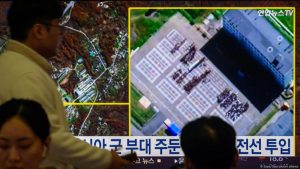
South Korea’s National Intelligence Service (NIS) confirmed that North Korea has decided to send troops to Russia
© Sopa/Sipa/picture alliance
Europe’s failure
On Wednesday, NATO spokesperson Farah Dakhallah in Brussels told DW that if North Korean troops were indeed designated to fight in Ukraine, “it would mark a significant escalation in North Korea’s support for Russia’s illegal war and yet another sign of Russia’s significant losses on the front lines.” She added that the alliance was actively consulting on the matter.
According to Roderich Kiesewetter of the German Christian Democratic Union, Germany’s largest opposition party in the Bundestag, it was a “fatal omission” that Europe had not yet reacted to North Korea’s suspected troop deployment.
A united and decisive reaction of strength and deterrence is absolutely necessary, he told DW. “Many European countries have wanted this for a long time,” he added. Germany also had to alter its stance, he said, by reducing range restrictions on delivered weapons, providing more weapons systems to Ukraine, and issuing an invitation to join the NATO alliance.
Meanwhile, Berlin’s Federal Foreign Office summoned North Korea’s chargé d’affaires on Wednesday. In the meeting, Berlin made clear that supporting Russia’s war of aggression posed a threat to German security and peace in Europe.
Temporary ties
Earlier in October, when the indications of deeper Russian-North Korean cooperation began to intensify, DW spoke to Andrei Lankov, a professor at Kookmin University in Seoul.
“Russia may benefit from this to avoid mobilization,” he told DW, adding that “if you look at it from the Russian point of view, [Russian President Vladimir] Putin is fighting a war that is generally popular in Russia, but only on the one condition that the majority of the population is kept out of the fighting and is not ‘disturbed’ from its day-to-day life by the war.”

Republican presidential nominee Donald Trump has sworn to cut back foreign spending, which would affect Ukraine’s war efforts against Russia
© Shannon Stapleton/REUTERS
In his view, fewer and fewer men in Russia are prepared to put their lives on the line, even for financial benefits such as those offered in army contracts.
North Korea, on the other hands, wants money and technology for sending its soldiers.
“Right now, a private in the Russian military gets $2,000 (€1850) a month plus a signing-on bonus that can be as much as $20,000 (€18,500). If North Korea gets half of that figure for every soldier it provides, then Pyongyang will be very happy,” Lankov said.
Furthermore, North Korea is eyeing Russia’s modern technology.
“Under different circumstances, Russia would never be willing to share technology with such an unstable country, but now it has no other choice,” Lankov added.
However, in his view, this cooperation is not meant to last. Instead, after the end of the war in Ukraine, Lankov expected relations to return to their previous level, as North Korea ceases to be of economic interest to Moscow.
Rayna Breuer contributed to this article, which was translated from German.
Author: David Ehl, Julian Ryall
You may like
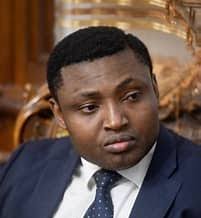

Simon Ekpa Faces Justice: Finnish Court Approves Extradition to Nigeria
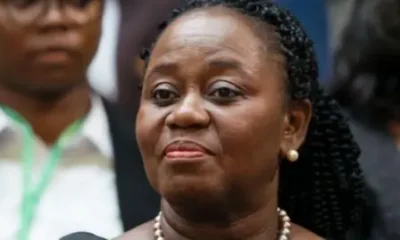

Mahama suspends Ghana’s chief justice over misconduct allegations


“Outside with Runtown” – TikTok Peller Overjoyed as he links up with Runtown for the first time!
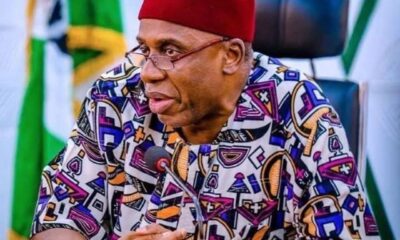

38 Years in Politics, Have you heard ‘I stole any money? My Wife Has No Personal Car -Rotimi Amaechi
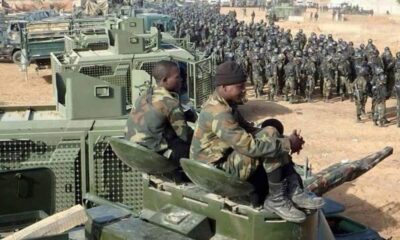

Troops Avert Ethnic Violence in Plateau as Soldier Nabbed Over Car Theft in Abuja.


StyleBasketballer Kiki Iriafen’s Outfit At WNBA Draft Night Pays Homage To Her Nigerian Roots
Politics
Mahama suspends Ghana’s chief justice over misconduct allegations
Published
9 hours agoon
April 22, 2025By
Ekwutos Blog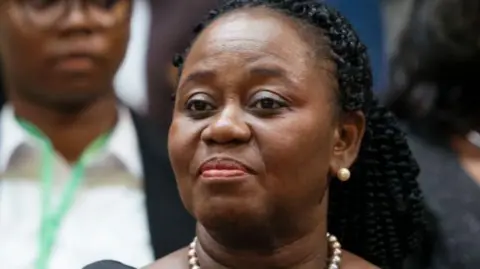
John Mahama, Ghana’s president, has suspended Gertrude Torkornoo, the country’s chief justice, over allegations of misconduct.
In a statement on Tuesday, Felix Kwakye Ofosu, the presidential spokesperson, said the council of state took the decision after three persons filed a petition against the chief judge.
Ofosu said allegations against Torkornoo include tampering with court records and misuse of public funds.
“In consultation with the Council of State, it was determined that a prima facie case has been established and that Torkornoo would be suspended while she is investigated,” the statement reads.
The president has also given the suspended chief justice 10 days to respond to the allegations and has set up a five-member investigative team to look into the issues.
The investigative committee is being led by Gabriel Pwamang, a supreme court justice. The panel also includes former auditor-general, Daniel Domelevo.
Torkornoo, 61, was appointed in June 2023, becoming Ghana’s 15th chief justice and the third woman to hold the post.
While past judicial leaders have left through retirement or political upheaval, her suspension is the first time a sitting chief justice has faced formal investigation through a constitutional process.
Mahama, who took office in January, has promised a crackdown on graft in the country.
Politics
38 Years in Politics, Have you heard ‘I stole any money? My Wife Has No Personal Car -Rotimi Amaechi
Published
10 hours agoon
April 22, 2025By
Ekwutos Blog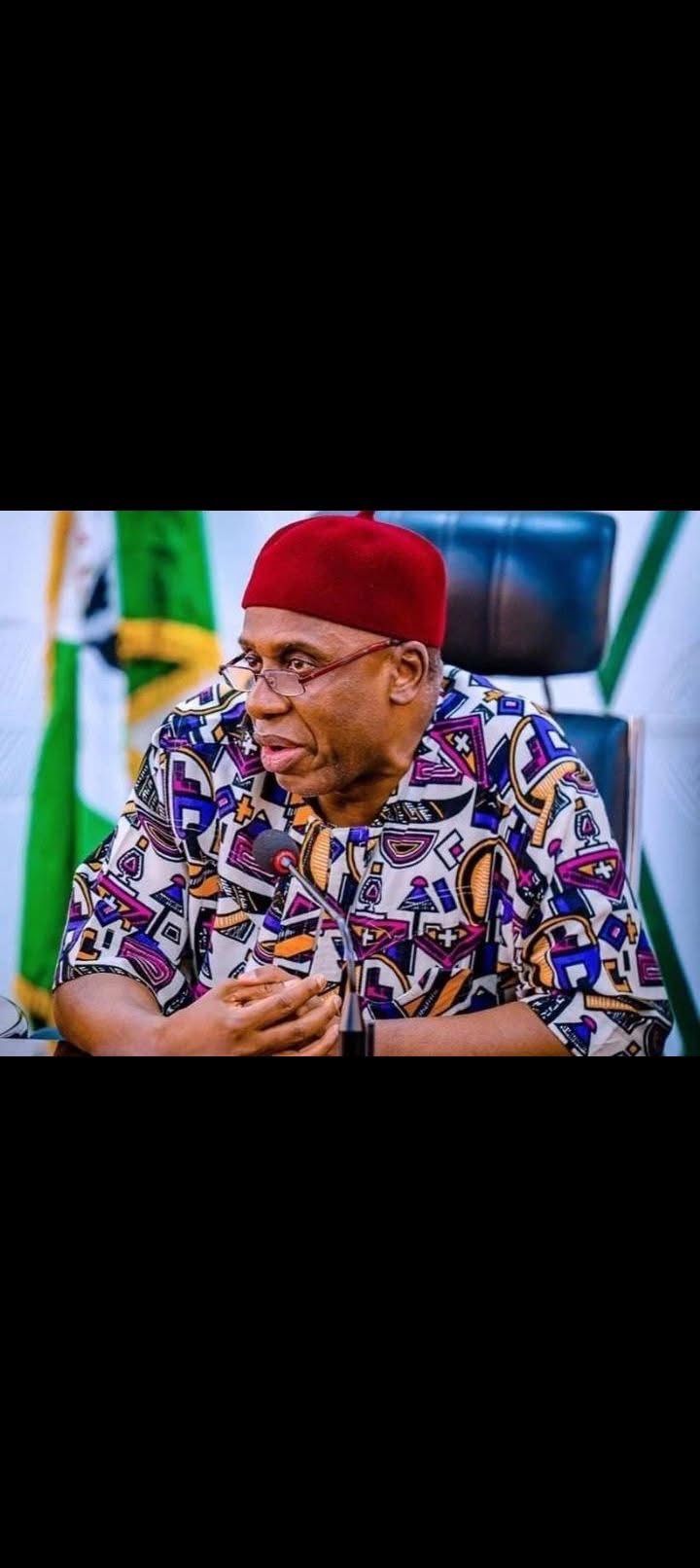
the former governor of Rivers State, has made headlines by emphasizing his integrity in a career that spans 38 years in Nigerian politics. In a candid interview with Daily Sun, Amaechi stated, “Have you heard ‘I stole any money?’”
Amaechi, who began his political career at the age of 22, reflected on his longevity in the field, now at 60 years old. He expressed pride in his reputation, saying, “I have been in politics for nearly four decades, and I have maintained a clean record.
What scandals have you heard of me? My life has been transparent.”
He highlighted that despite his high-profile roles, including serving as the Minister of Transportation and the Speaker of the Rivers State House of Assembly, he has remained free from any accusations of corruption.
In a remarkable revelation, Amaechi shared that his wife does not own a personal vehicle. “My wife doesn’t even have a car.
I have to provide my backup car for her to drive,” he noted, reinforcing his message about living a modest lifestyle despite his political stature.
“It’s not that we can’t afford it; it’s just how we choose to live our lives.”
Politics
Killings: Niger Governor, Bago imposes dusk-to-dawn curfew in Minna
Published
10 hours agoon
April 22, 2025By
Ekwutos Blog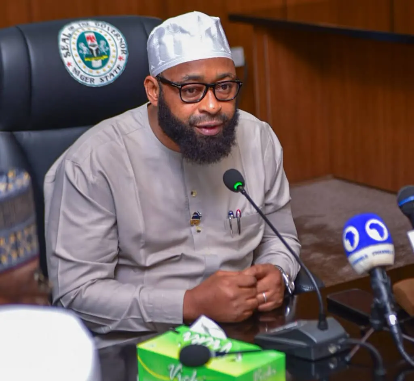
Governor Umaru Mohammed Bago of Niger State has imposed a 6pm to 6am curfew in Minna, the state capital, following a rise in attacks and killings.
The restriction also applies to commercial motorcycle and tricycle operators.
The decision was announced at a security stakeholders’ meeting involving traditional rulers and security agencies.
Medical emergencies are exempted from the curfew.
The governor instructed local leaders to document visitors to their areas and warned that any house found harboring criminals or drug cartels would be demolished.
This comes amid a resurgence of thuggery and violence in the city.
He further gave the Security Directives ;
EXECUTIVE ORDER ON THUGGERY ACTIVITIES WITHIN MINNA BY HIS EXCELLENCY, THE EXECUTIVE GOVERNOR OF NIGER STATE 22/04/2025
1. ANYONE FOUND IN POSSESSION OF ANY WEAPON INCLUDING KNIVES AND STICKS SHOULD BE TREATED AS AN ARMED ROBBER AND IF KILLED THE PARENTS MUST PAY FOR THE BULLET BEFORE RELEASING THE CORPS
2. ANYONE KEEPING DREAD-LOCK HAIR SHOULD BE ARRESTED AND SHAVED
3. THERE IS IMMEDIATE CURFEW FOR KEKE NAPEP AND OKADA WITHIN MINNA FROM *6PM TO 6AM*
4. ANYONE GOING TO SEEK FOR BAIL OF THUGS FROM POLICE STATION SHOULD ALSO BE ARRESTED
5. ANY MAI-ANGWA, HAKIMI OR VILLAGE HEADS HARBOURING THUGS SHOULD BE DETHRONED AND ARRESTED
6. ANY HOUSE FOUND WITHIN MINNA SELLING ANY KIND OF ILLICIT DRUGS SHOULD BE DEMOLISHED AND OCCUPANTS ARRESTED
7. SPECIAL COURT SHOULD BE ESTABLISHED UNDER THE SUPERVISION OF THE CHIEF JUDGE OF NIGER STATE TO HANDLE THUGGERY CASES FOR SPEEDY JUDGEMENT AND SUBSEQUENT IMPRISONMENT
8. ANGWA DAJI AND BARKI SALE AREAS SHOULD BE PLACED ON SERIOUS SECURITY WATCH
9. HENCEFORTH OPERATION FLUSH IS NOW DIRECTLY UNDER THE OFFICE OF MR. GOVERNOR.
10. ANY VEHICLE COMING INTO MINNA AND CAUGHT WITH ILLICIT DRUGS SHOULD BE CONFISCATED INTO GOVERNMENT PROPERTY……

Simon Ekpa Faces Justice: Finnish Court Approves Extradition to Nigeria

Mahama suspends Ghana’s chief justice over misconduct allegations

“Outside with Runtown” – TikTok Peller Overjoyed as he links up with Runtown for the first time!
Trending

 Trending6 months ago
Trending6 months agoNYA demands release of ‘abducted’ Imo chairman, preaches good governance
- Business6 months ago
US court acquits Air Peace boss, slams Mayfield $4000 fine

 Politics6 months ago
Politics6 months agoMexico’s new president causes concern just weeks before the US elections
- Entertainment6 months ago
Bobrisky transferred from Immigration to FCID, spends night behind bars
- Entertainment6 months ago
Bobrisky falls ill in police custody, rushed to hospital

 Politics6 months ago
Politics6 months agoRussia bans imports of agro-products from Kazakhstan after refusal to join BRICS

 Politics6 months ago
Politics6 months agoPutin invites 20 world leaders
- Politics1 year ago
Nigerian Senate passes Bill seeking the establishment of the South East Development Commission.

